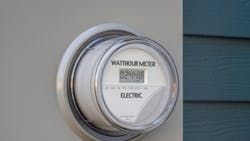Landis+Gyr Brings G3 PLC Smart Metering to Austria
Landis+Gyr will supply its smart metering solution, Gridstream, which will run on G3 PLC technology to Netz Burgenland Strom. The agreement includes the supply of infrastructure for the utility's head-end-system, which enables the utility to remotely read all meters in its network.
Netz Burgenland Strom is one of the seven largest electricity distribution system operators in Austria and has more than 200,000 metering points in its network. It awarded Landis+Gyr the contract following a pan-European tender. Under the terms of the agreement, the first 3,000 meters will be installed in late 2015. The next roll-out step, comprising 20,000 further devices, is planned for 2016, with the full meter park to be replaced with smart meters by 2019.
"We were convinced by the state-of-the-art meters from Landis+Gyr, as well as by the cost-benefit ratio and the vast experience the company holds in roll-outs," states Peter Sinowatz, Managing Director of Netz Burgenland Strom, "the G3 PLC technology enables us to put the full potential of power line communication to use."
G3 is an Orthogonal Frequency Division Multiplexing (OFDM) based technology, which is a modulation format used for many of the latest wireless and telecommunications standards. It enables fast and cost-efficient data transfer over existing power lines: Very high volumes of data can be communicated over electricity networks using G3 and by doing so, opportunity for future smart grid applications are created. Crucially, as power line communication enables energy data to be transferred over existing electricity networks, the operation and installation costs are extremely low.
The smart residential meter, the E450 from Landis+Gyr, will be rolled out across the network of Netz Burgenland Strom from November this year. The meter enables core functionalities that include multi-energy metering and personal energy management, which allows for direct communication between the utility and the end-consumer. Landis+Gyr's Gridstream is an end-to-end smart grid solution that combines metering, communications, network management, software, grid and consumer applications, as well as professional services in a single secure and integrated platform.
In April 2012, the Austrian Ministry for Economy, Family and Youth passed a decree that stated 95 percent of the country's meters must be 'smart' by the year 2019. The act was passed as a response to the framework set out in the EU's 3rd Energy Package, which states that at least 80 percent of European households should be enjoying the benefits of smart metering by the year 2020.
